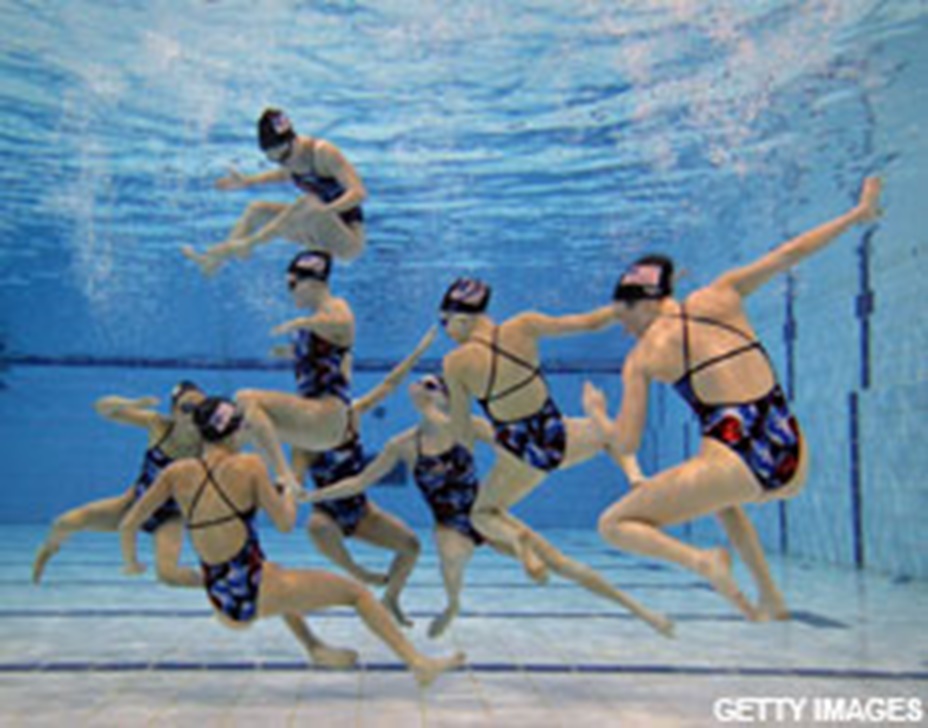The London Games are just four months away, and while swimmer Michael Phelps, sprinter Usain Bolt and other "well-heeled, well-sponsored athletes are training tirelessley," some lesser-known athletes are "not part of that" 1% of sport, according to Sean Gregory of TIME. Small-time Olympic athletes "have to be creative." U.S. runner Nick Symmonds is "renting out his skin as a billboard." He "promised on eBay to wear a temporary tattoo brandishing the name of the highest bidder as he competes for a spot on the U.S. team." Milwaukee-based marketing firm Hanson Dodge Creative gave Symmonds $11,000 to "sport the company's Twitter handle on his arm at meets." U.S. pole vaulter Mark Hollis "shot a Web advertisement for Corda-Roy's, a company that sells beanbag furniture." His payment was a beanbag that retails for $499. Race walker John Nunn "just started a cookie business." However, Gregory notes no athletes have "faced a more unusual path to the Olympics than the synchronized swimmers." The U.S. team trained at Aquamaids Synchronized Swimming Club in Santa Clara, Calif., and in exchange for resources "like coaching, pool time and a travel budget for meets, for every trimester they trained at Aquamaids, the swimmers had to log 100 hours of labor at the 20,000-sq.-ft. bingo hall" that generates more than 90% of the club's $2.4M yearly revenue. Synchronized swimmer Ali Williams said that her teammates "don't even get much support from U.S. Synchronized Swimming," the NGB that runs the sport. She recounted a January meeting when she explained to USA Synchro Exec Dir Terry Harper that a $750-a-month stipend "wasn't sufficient to cover basic expenses." Williams said he replied, "That is not my problem." A teammate "confirmed that he used those words," but Harper said that he "does not recall using them." Harper indicated that he did recall "explaining to the swimmers that direct funding for athletes is traditionally the responsibility of the USOC, not sport-governing bodies like USA Synchro" (TIME, 4/2 issue).




